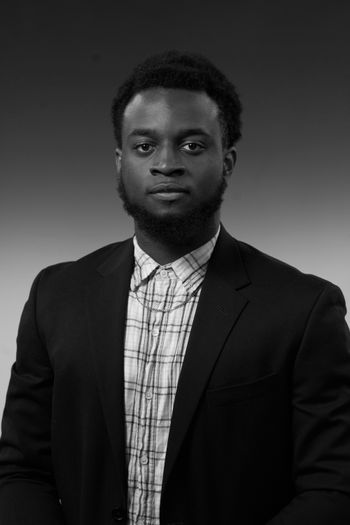'A safe and radical space': UBuffalo 'Sounds of Blackness' conference cites 1619 Project, exposes 'racial bias' of common core
The school's 6th annual, hip-hop-themed event featured numerous speakers who promoted themes like 'liberation,' black feminism, and the 1619 Project.
Sessions included were 'Black History is the Origin of Humanity,' 'Students Developing an Antiracism Curriculum,' and 'Coming Up in a Man's World: Using Angie Thomas's On the Come Up to Discuss Gender, Sexuality and Identity in Hip Hop.'
From July 21-23, the State University of New York at Buffalo hosted its 6th annual Teaching Black History Conference, largely focusing on anti-racism through the “Sounds of Blackness.”
This year’s hip-hop-themed conference was marketed as “a safe and radical space for teachers to convene and discuss Black history curriculum and instruction.” For three days at Hayes Hall, attendees participated in over 80 breakout sessions, including: “Black History is the Origin of Humanity,” “Hip Hop Feminism: Uplifting Black Girls Voices in E.L.A,” and “Students Developing an Antiracism Curriculum.”
Many other sessions included black activist buzzwords in their titles, such as: “The Birth of American Music: Legacies of Anti-black Racism, Black Resistance, and Black Liberation in our Popular Music,” and “Antiracist Curriculum Project: Teaching the Local History of Racist Policy and Resistance.”
Other sessions alluded to intersectionality and black feminism, as evident by “Coming Up in a Man’s World: Using Angie Thomas’s On the Come Up to Discuss Gender, Sexuality and Identity in Hip Hop.”
On Twitter, Donnalie Jamnah, the conference’s speaker on “The Birth of American Music,” indicated she was “excited” to discuss “the creative ways educators have used ‘The Birth of American Music’ from #1619 to teach about culture and tradition.”
Jamnah, who lists her preferred pronouns as “she/they/Mx.,” has led other workshops promoting the 1619 Project. According to her website, she is “committed to liberation and equity.”
Shane Wiegand, the co-director of the Antiracist Curriculum Project for Coordinated Care Services, served as the guest speaker for a session concerning his anti-racist efforts. Wiegand and his co-director Kesha James specifically work to “develop and deliver antiracist curricula to school districts, nonprofit agencies, for-profit agencies, government agencies, academic organizations, and other business sectors.”
Emmanuel Kulu, the presenter of the “Black History is The Origin of Humanity” session, told Campus Reform prior to the event that he intended to “expose the common core curriculum’s racial bias version of History” that omits “years of proven and documented African influence & contribution to the world.”
Kulu founded the Ancient African Antiquities Research Institute for America in order to “uncover, restore, reclaim, and reveal the key to unlocking the missing piece of the human story, ‘Mama Africa.’”
[RELATED: Stanford Associate Dean Tirien Steinbach resigns months after judge shoutdown scandal]
Conference organizer LaGarrett King, who is also the Founding Director of the UB Center of K-12 Black History and Racial Literacy Education, told Campus Reform that, “Radical means to go against tradition. The traditional way of education is that most U.S or World history courses ignore Black history.”
King added, “Teaching Black history is radical education because the typical teacher does not teach Black history effectively.” He lamented the fact that topics of “racial inequities and how we can work together to make society more equitable” aren’t discussed in the “the typical k-12 history curriculum.”
Campus Reform reached out to all parties for comment and this article will be updated accordingly.
Follow Daniel Idfresne on Twitter.

